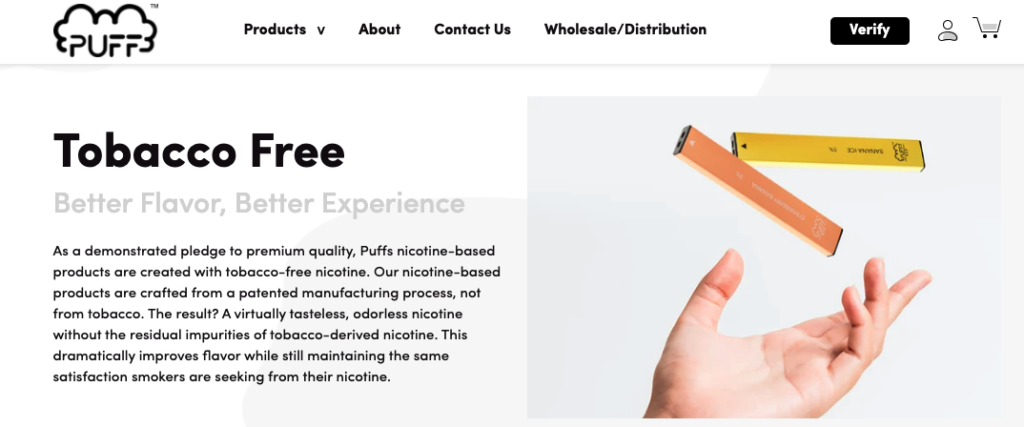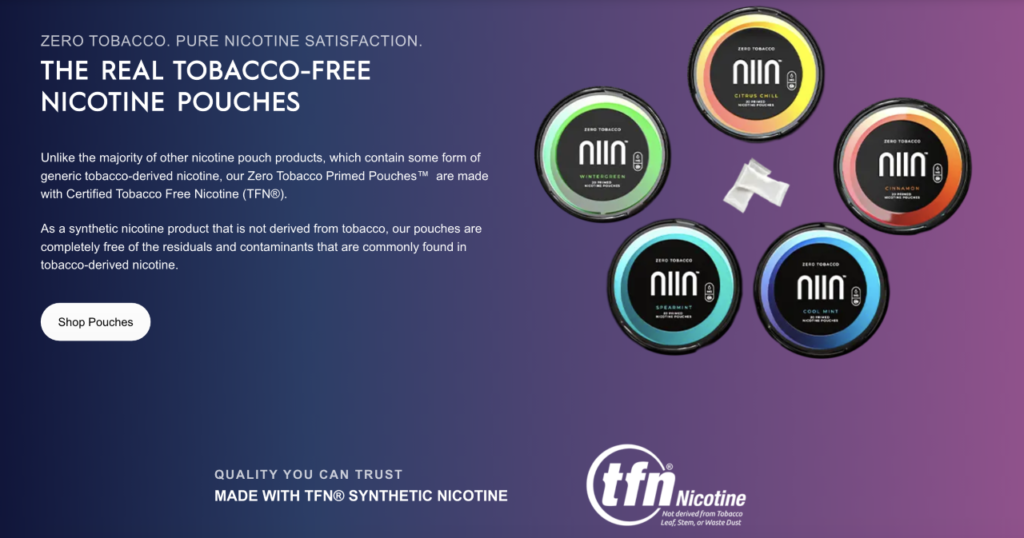Grace Kong & Suchitra Krishnan-Sarin
Constant innovations in the design, formulation, and marketing of tobacco products have resulted in novel products with high appeal among youth. In the USA, this has raised regulatory challenges for the Food and Drug Administration (FDA). For instance, the introduction of pod-based e-cigarette devices like JUUL led to huge increases in youth e-cigarette use.
The FDA’s ban on flavored cartridge-based e-cigarettes in 2020 to counter the popularity of these pod devices among youth led to an upsurge in youth use of “disposable pod devices” (e.g. Puff Bar, Eon Stik) not covered by the ban. More recently, Puff Bar devices reappeared on the market in February 2021 (after being removed in 2020 in response to FDA warnings) claiming that their product now has tobacco-free nicotine (TFN). According to Puff Bar, TFN refers to nicotine not derived from a tobacco product but produced through a “patented manufacturing process”.

However, Puff Bar is not alone in claiming use of “synthetic” nicotine. To assess the presence of TFN products, we searched for “tobacco free nicotine” and “synthetic nicotine” on 12 online e-cigarette retailer websites in April 2021 (excluding websites that only sold e-liquids). We also assessed other constituents (flavors, nicotine concentration) and marketing claims of TFN products on these websites. We observed that 10 out of 12 online retailers sold e-cigarette products that they claimed contained TFN. Brands that sold TFN e-liquids only were: Air Factory, Aqua Vape, BLVK, Cloud Nurdz, Five Pawns, Glas, Mega Milk, Moo E-liquids, and Zooka. Brands including BluBar, Cali Bar, Exotic Bar, Ignite, Pachamacha, and Puff Labs sold TFN disposable pod devices; Dinner Lady sold TFN e-liquids and disposable devices; Glas sold TFN e-liquids and closed cartridge pod devices; and Riptide sold closed cartridge pods.
TFN nicotine was available in both freebase and nicotine salt with a range of nicotine concentrations (0-50mg/ml) and flavors (fruit, candy, dessert, coffee, vanilla, menthol, “ice”, and tobacco). The TFN brand/retailer websites claimed that relative to tobacco derived nicotine, TFN was cleaner, purer, has higher quality, tastier, and represented a “sophisticated vaping experience”.
These synthetic TFN e-cigarette products present a quandary for FDA regulations. The Tobacco Control Act (2009) gave the FDA jurisdiction over tobacco products that contain nicotine derived from tobacco, however it is unclear if TFN falls under FDA’s regulatory jurisdiction. It is critically important to also note that the term TFN is being used to refer to both nicotine derived through a synthetic process, as well as nicotine that is derived from tobacco but is purified to remove everything except nicotine. For example, newer TFN nicotine pouches like Zyn and Velo, which are becoming popular among youth claim that they contain purified nicotine derived from tobacco, while other nicotine pouches like NIIN and 2ONE claim that they contain nicotine not derived from tobacco.


The FDA must exert its regulatory authority on TFN and prevent misperceptions on the use of the term “tobacco free” to prevent future youth epidemics and protect public health.
Grace Kong, PhD, and Suchitra Krishnan-Sarin, PhD, are both with the Department of Psychiatry, Yale School of Medicine, New Haven, CT, USA. This research was supported by grants numbers U54DA036151 (Yale TCORS) and R01DA049878 from the National Institute on Drug Abuse (NIDA) and U.S. Food and Drug Administration (FDA) Center for Tobacco Products (CTP). The content is solely the responsibility of the authors and does not necessarily represent the official views of the NIH or the FDA. The authors do not have any conflict of interest to report. The authors thank Alex Sebastian Schott for assisting in data collection.